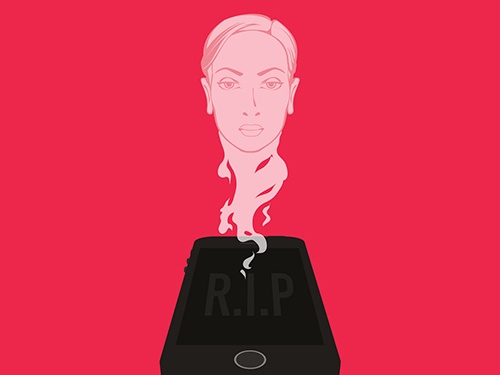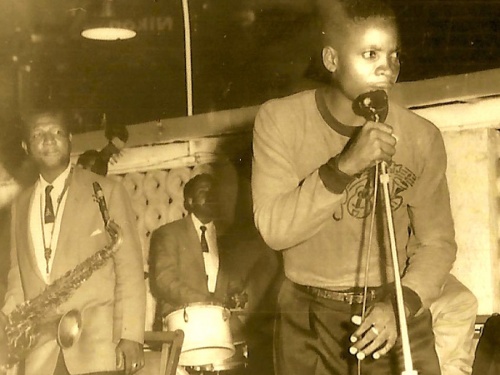Voices of Dissent: DIY Radio in the 21st Century
Can digital technologies create a space for new voices of dissent? Elizabeth Johnson explores this question for the ICA Bulletin. Elizabeth Johnson is a PhD candidate at the London Consortium, and Co-Founder of Critical Waves, a collaboration between Birkbeck College, the ICA and Resonance104.4FM, generously supported by the Arts and Humanities Research Council.
The internet did not kill the radio star. If anything, digital tech has fuelled a veritable sonic boom in our listening habits. We access online archives of old programmes, stream live ones and download podcasts, handpicking individual broadcast schedules to suit our tastes. The (digital) airwaves sing with the sound of new online stations. Just look at NTS, the ICA’s current Associate Artist. And these new stations don’t need big budgets or fancy studios – just a laptop, enthusiasm and motivation. Armed with a computer, Audacity and a SoundCloud account, anyone can become a broadcaster, and many of us have. The wireless has truly gone wi-fi.
This digital revolution has returned radio to the hands of the amateurs and the enthusiasts who first became enchanted by this strange new technology at the start of the 20th century. Then, radio let its fans eavesdrop on the world, scrolling through the wavebands at night on their homemade receivers, picking up the signals transmitted from distant shores. Access to radio technology let them listen in, and later, it let others speak out. In Italy during the 1970s, Radio Alice (founded by Franco ‘Bifo’ Berardi who spoke at the ICA earlier this year) spewed out a Dada-inspired cacophony that stood in radical opposition to the institutional politics of the day. In Britain, starting with Radio Caroline in 1964—broadcast from a ship off the Essex coast—pirate radio gave us the chance to hear voices other than Auntie’s, catering to communities and interests that the BBC overlooked.
The importance of pirate radio in Britain in the 1980s is explored in the ICA’s current exhibition, Shout Out! UK Pirate Radio in the 1980s. And while, the Broadcasting Act of 1990 sounded the death knell for on-air pirate activity (with few renegade broadcasters remaining) Shout Out! prompts the question: is DIY online radio the new forum for the voices of dissent that have long been part of radio’s history?
But there are big differences between analogue and digital DIY radio; between live pirate broadcasts and the podcasts and pre-recorded programmes that we download and stream with such zeal. Artists and academics debated these differences at the Critical Waves conference, hosted at the ICA in March. Amid all the discussions of how artists use the voice as a material, the overwhelming popularity of Serial, and the ethics of using the voices of others; for me, one voice stood out above the debate. If DIY podcasting offers us all the opportunity to transmit our ideas; if it is a great leveller of who speaks and who listens; artist and activist Marc Herbst, urged us to ask: what precisely is it levelling and how does it level?
For something is lost when we speak not only as individuals, but individually. Yes, online and digital technology can create a platform for voices of opposition and dissent, but they can also be without what Herbst called the social production of community radio – the communities of local listeners and the collective enterprise of the funding structures that support them. Most simply, they are without the serendipity of live radio: the chance for the unsuspecting listener to catch a programme they didn’t even know they wanted to hear.
The run-up to the recent election saw us enter something of a political time warp. As the Tories pledged to sell off the last scraps of social housing, taking us back to one of Thatcher’s hallmark policies, many recognised the urgent the need to hear more than the sermon sung by the Establishment. Digital and online technology have given the 99% the power of broadcasting, put a microphone to their lips and offered a space of resistance. The rose-tinted visions of online utopias that blossomed at internet’s advent have long since faded. A visit to Shout Out! UK Pirate Radio in the 1980s underlines this by reminding us that a community of live broadcasters and listeners is a powerful thing, encouraging us to ask: will the digital incarnation of DIY radio further fragment our voices, or will it let the 99% be heard? ■
Shout Out! UK Pirate Radio in the 1980s runs 26 May - 19 June.
Shout Out! UK Pirate Radio in the 1980s tours to the Phoenix in Leicester, 23 July – 24 August 2015.
This article is posted in: Articles, Blog, Exhibitions, Music
Tagged with: Shout Out! UK Pirate Radio in the 1980s, Elizabeth Johnson, Digital, Radio, Exhibitions, Conferences, Pirate Radio, Music







